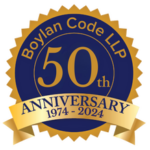Many would find it hard to believe that the Marketplace Fairness Act has a long legal history. While shopping on the internet may be a fairly modern concept, shopping from home is not. The progeny of the act is a 46 year old Supreme Court Case involving a mail order catalogue company called National Bellas Hess. In National Bellas Hess v. Illinois, the Court decided whether the State of Illinois could collect sales tax on mail ordered goods sent from National Bellas Hess’ Missouri plant to the buyer’s home in Illinois. The Court held that it was unconstitutional under the Commerce Clause for a state to tax a seller “whose only connection with customers in the state is by common carrier or mail.” In 1992, the Supreme Court revisited the issue in the case of Quill Corp v. North Dakota. The facts were analogous to National Bellas Hess and had the same substantive outcome, ruling that a business must have a physical presence in the taxing state in order for that state to require payment of sales tax. However, there was one very important distinction between National Bellas Hess and Quill. The National Bellas Hess Court ruled the tax to be wholly unconstitutional while the Quill Court explicitly stated that Congress could overrule its decision. That left open the possibility that taxes could be imposed on mail-order purchases if Congress so desired.
Naturally, in 1992 no one could foresee the rise of the internet and the eventual popularity of shopping on a computer at home. Nineteen years later, Senators Dick Durbin (D-Illinois), Mike Enzi (R-Wyoming), and Lamar Alexander (R-Tennessee) finally caught up and introduced the bill that would change the rule first set out in National Bellas Hess and reaffirmed in Quill. The Marketplace Fairness Act requires online merchants to collect state sales tax on all purchases and remit those taxes to the buyer’s taxing jurisdiction. On May 6, 2013, the bill was approved by the U.S. Senate by a vote of 69-27. It is now being hotly debated in the House.
The Act is polarizing, but not so much on the traditional party lines one would expect. For example, lawmakers from the same parties are arguing with each other whether the law is a benefit or a burden to small businesses. Amazon and Wal-Mart support the Act, yet eBay is adamantly opposed to it. This leads us to question: who are the winners and losers if and/or when the bill becomes a law?
Unless your definition of small business includes internet based companies that do sales in the multi-millions, small businesses will benefit from the law because there is an exemption for businesses that gross less than one million dollars per year. In addition, consumers will be shifted back to local brick and mortar stores. Unequal tax treatment naturally distorts market forces. On-line retailers currently have an advantage and closing this loophole will level the playing field for local mom and pop shops. The other winners are states that currently use a sales tax regime as a major source of funding. The National Governors Association reports that it would increase state revenue by between $12 billion and $24 billion annually. States such as Maryland and Virginia are already looking at the potential increased revenue to fund new projects.
The group most adversely affected by the law is online shoppers. The once indefinite tax holiday on online purchases will come to an end for consumers. Critics say that it could harm the economy if spending goes down due to the increased cost of consumer goods. Furthermore, the timing may not be right for a law that puts an additional stress on disposable incomes because consumers are already on a tight spending budget. States with little or no sales tax are also mounting opposition to the law. Those states have developed a system of government that does not rely on sales tax to fund its expenditures and do not care to impose the tax burden on their businesses and citizens. Thus, a legitimate state’s rights argument is being made.
Finally, critics of the law have also put forth the argument that the law will create an impossible complexity because retailers will have to keep track of the 9,000 or so different state and local taxing jurisdictions. However, surely a company will be able to create software that sets the automatic tax rate for sellers based on the buyer’s zip code, and states would be held responsible for keeping their tax databases up to date. Software developers are already jumping at the opportunity. Thus, with some rare bipartisan support and such ease getting through the Senate, it seems inevitable that the bill will eventually become a law. In addition, although consumers may take a slight hit, the law is coming at a time when many states are looking for alternative sources of revenue. Time is running out for consumers to enjoy this too good to be true tax break; the online buying frenzy is soon to begin.
Jeffrey Kowalski is an Associate at Boylan Code LLP, concentrating his practice on real estate, general corporate and municipal matters. For more information, please contact Jeff at (585) 232-5300 or jkowalski@boylancode.com.


